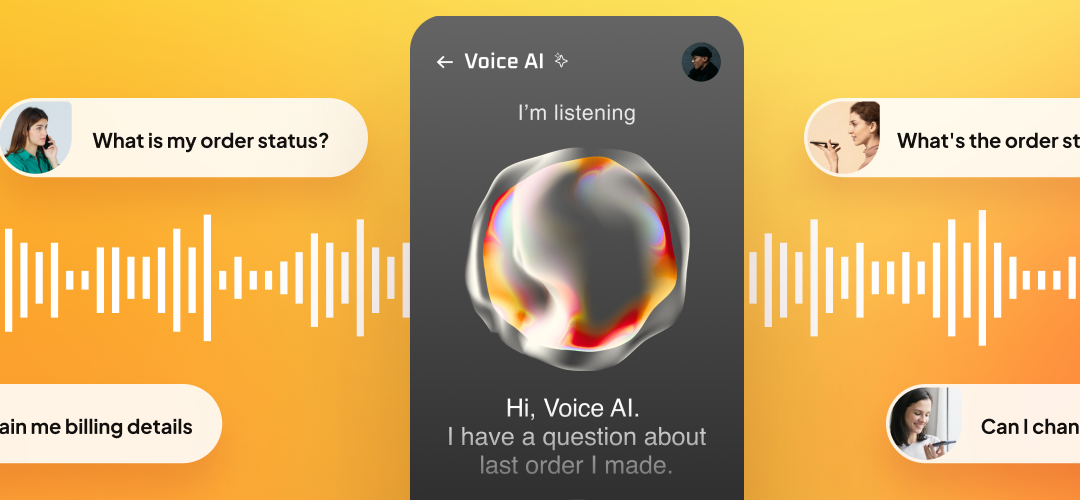The rise of Voice AI technology has sparked debate within the customer care industry. Is it a threat to traditional roles, or does it offer unparalleled opportunities for improvement? As businesses increasingly adopt AI-powered voice solutions, it’s essential to explore both the benefits and challenges of this transformative technology.
The Promise of Voice AI
Voice AI is revolutionizing customer service by automating routine tasks and enhancing efficiency. Here are some key advantages:
1. Improved Efficiency and Cost Savings
Voice AI can handle large volumes of customer inquiries simultaneously, reducing the need for additional staff during peak times. By automating repetitive tasks like answering FAQs or routing calls, businesses can significantly lower operational costs while maintaining high service quality .
2. Enhanced Customer Experience
Unlike traditional IVR systems, Voice AI offers natural, conversational interactions. Customers can speak freely without navigating rigid menus, receiving faster and more accurate responses. This leads to reduced wait times and higher first-call resolution rates .
3. Empowered Customer Service Agents
By taking over repetitive tasks, Voice AI allows human agents to focus on complex issues that require empathy and critical thinking. This shift enriches the agent’s role and reduces burnout, creating a more fulfilling work environment .
4. Data-Driven Insights
Voice AI systems generate detailed transcripts and analyze customer interactions to identify trends and recurring concerns. These insights help businesses refine their services and proactively address customer needs .
Challenges of Voice AI Implementation
Despite its advantages, Voice AI is not without challenges:
1.Integration with Legacy Systems
Implementing Voice AI in existing infrastructure can be complex and costly. Compatibility issues may arise, requiring careful planning and investment .
2. Maintaining Human Touch
While Voice AI excels at efficiency, it may lack the emotional intelligence needed for sensitive or nuanced interactions. Balancing automation with human involvement is crucial to ensuring customer satisfaction .
3. Data Privacy Concerns
Handling sensitive customer data requires robust security measures. Businesses must ensure compliance with privacy regulations to avoid breaches and maintain trust .
Voice AI: A Threat or a Blessing?
The answer depends on perspective:
- A Threat: For businesses that fail to adapt, Voice AI could disrupt traditional roles and lead to job displacement. Poor implementation might also alienate customers who value human interaction.
- A Blessing: When implemented thoughtfully, Voice AI enhances efficiency, reduces costs, empowers agents, and improves customer satisfaction. It creates a harmonious balance between automation and human intervention.
Conclusion
Voice AI is neither inherently a threat nor a guaranteed blessing—it’s a tool that requires strategic use. By leveraging its strengths while addressing its challenges, businesses can transform their customer care departments into efficient, innovative hubs that prioritize both employee well-being and customer satisfaction.
Want to explore how Voice AI can elevate your customer care department? Book a free demo today!

